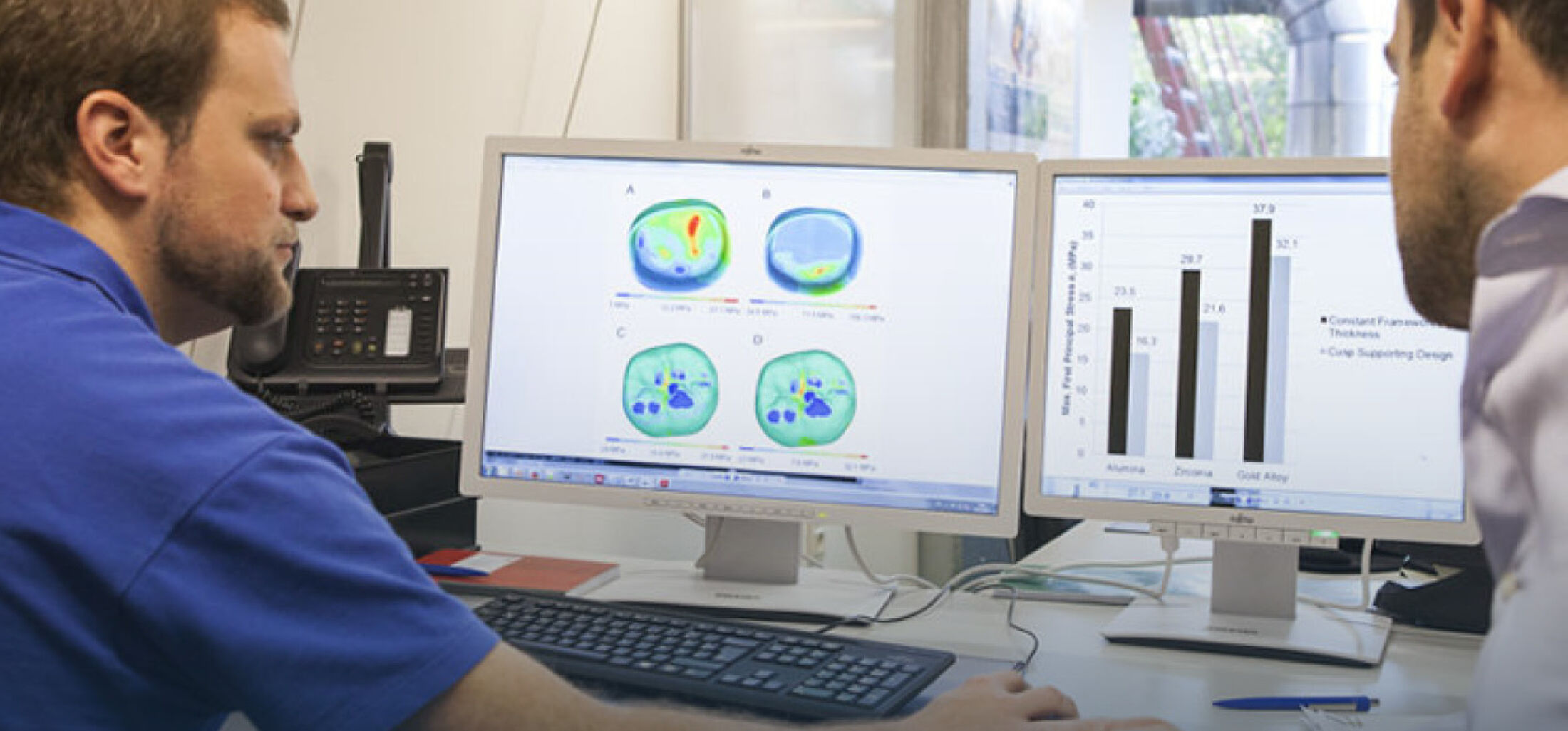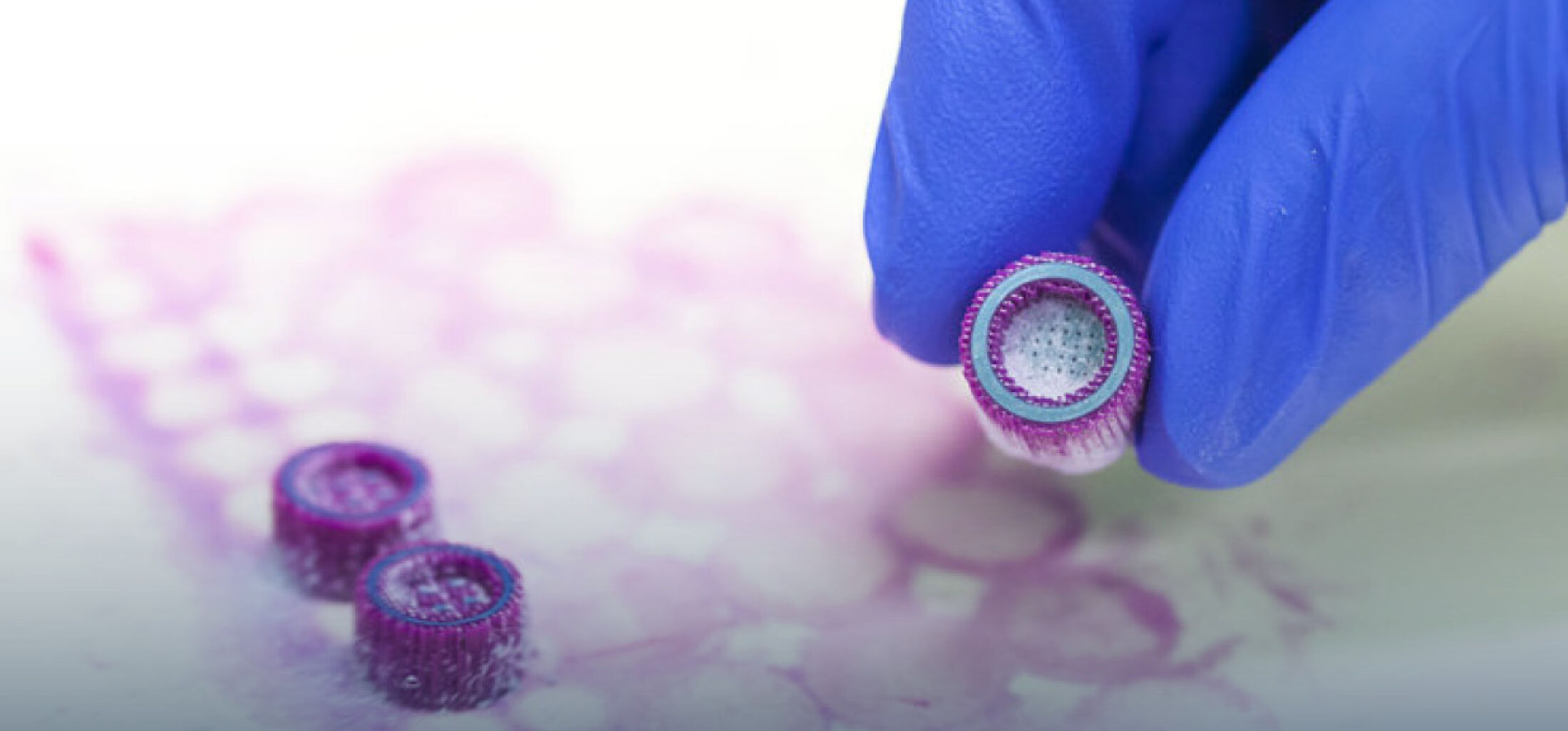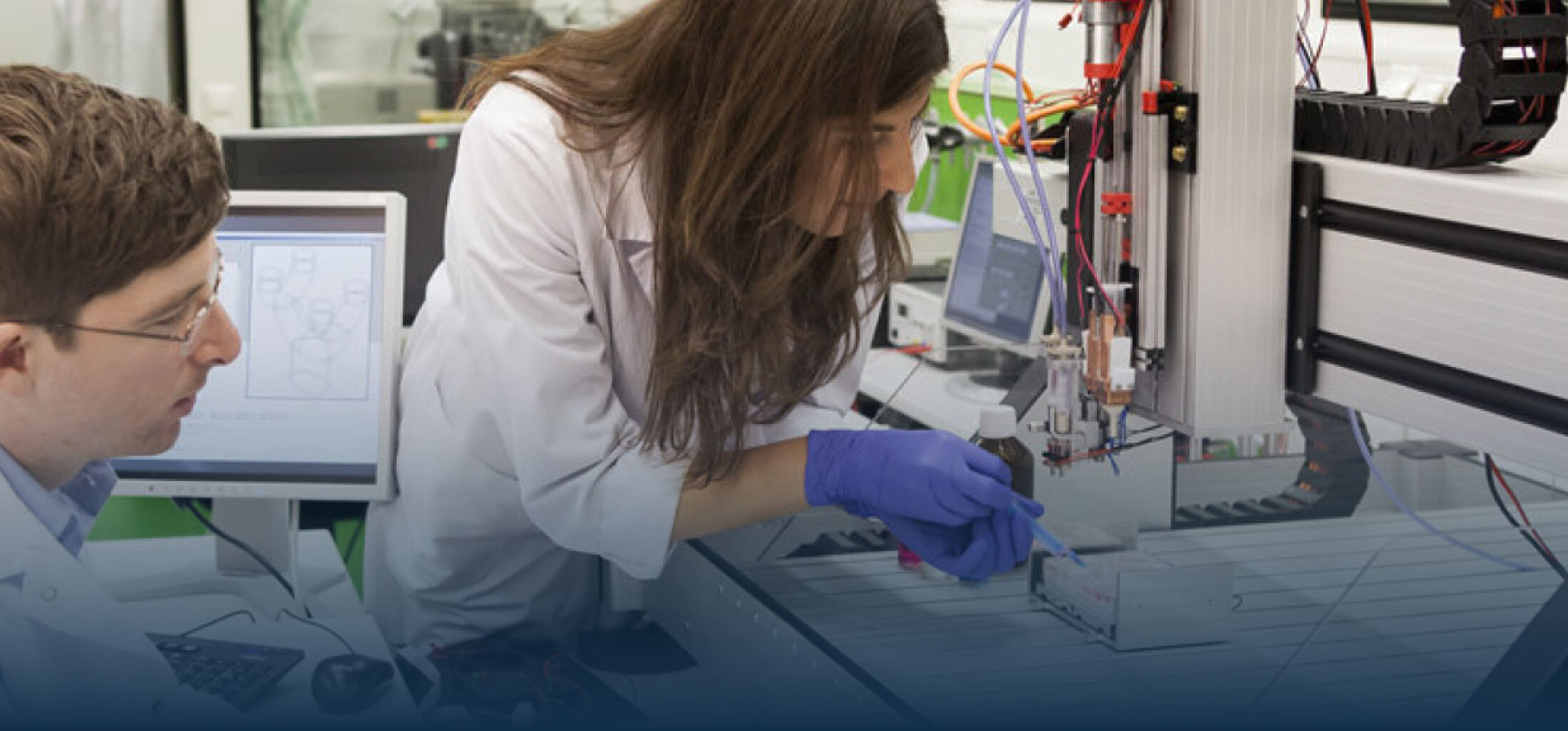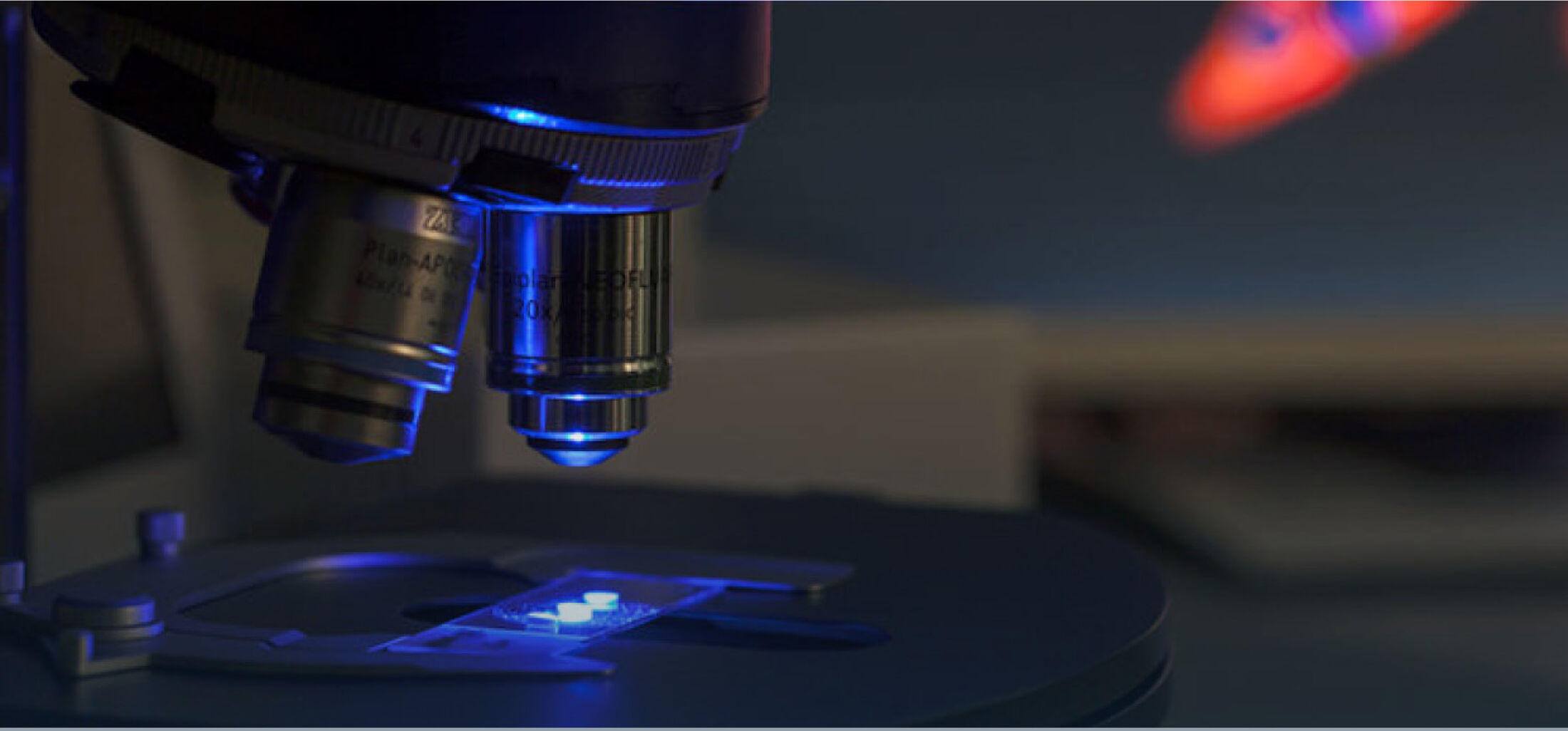GlassCoat
Electrophoretic coating of bioactive glasses on titanium implants
Titanium-made dental implants are usually functionalized through various strategies for exposure in the human body. Shorter healing times and an improved mechanical bond to bone are always aspired. A very interesting approach to achieve those objectives is coating the implant surface with a bioactive glass layer. Some glasses from the SiO2-Na2O-K2O-Ca2O-MgO-P2O5-system form a hydroxyapatite layer on their surfaces in the human environment. Thereby a strong bond to bone can be achieved. Depended on the glass composition both, the adherence between bone tissue and glass and the resorption of the glass can occur.
Electrophoresis is an interesting method to coat titanium implants with bioactive glasses. Using this cost effective process, two electrodes are placed in a suitable suspension where a DC-electric field is applied. The charged particles in the suspension move toward the oppositely charged electrode where they create a compact, homogeneous and thin film. After deposition, a heat-treatment step is needed to further densify the deposit and to eliminate porosity. In this process several parameters have to be considered. On the one hand the sintering temperature must not induce an impairment of the titanium substrate or a recrystallization of the glass. On the other hand the coefficients of thermal expansion have to be adjusted. The glass coating that fulfils those requirements by a customized chemical composition, however, still has to exhibit the desired mechanical and biological properties which will be proved in suitable tests.
This research project is a cooperation of the ZWBF, the Department for Prosthodontics and Dental Materials, and the Institute of Pathology at the University Hospital Aachen. It is supported by the START-Programm of the Faculty of Medicine, RWTH Aachen.




